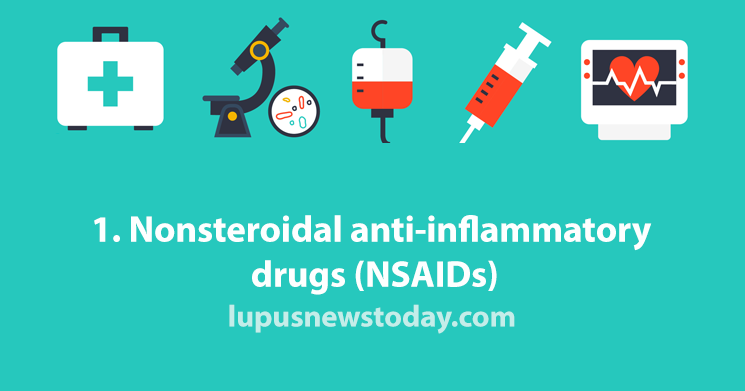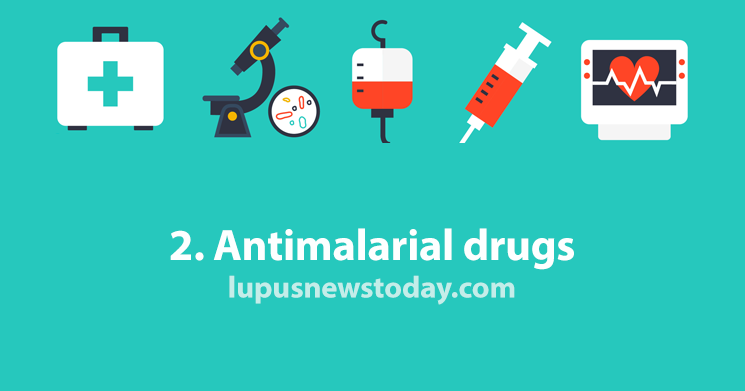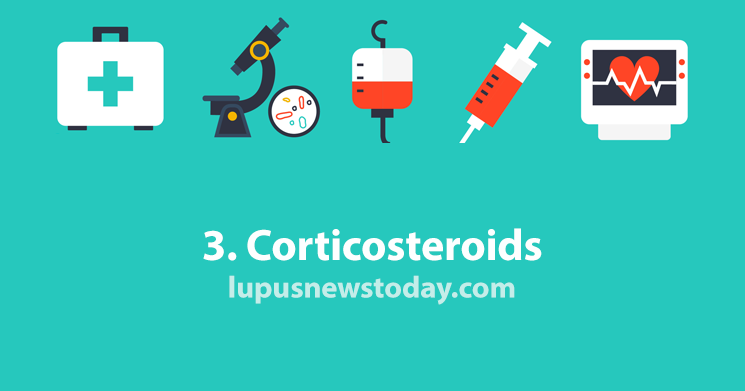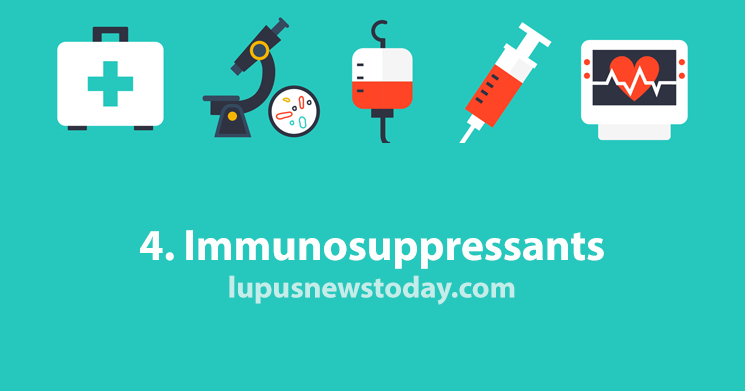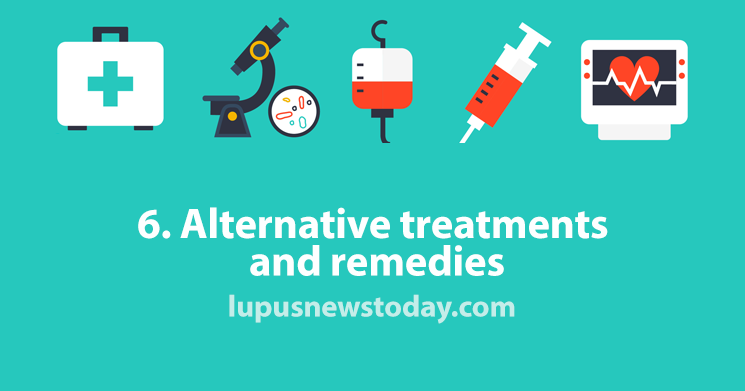6 Treatment Options for Lupus Patients
Written by |

Each lupus patient experiences his or her own unique combination of symptoms, which means each treatment regimen must be unique and adapted to each patient. Even though there’s not one simple treatment option to follow, there are four main drug classes that are currently used to treat lupus:
Over-the-counter NSAIDs are used to alleviate pain and swelling. There are also prescription-strength NSAIDs available when these are not effective. Up to 80 percent of lupus patients take an NSAID for symptoms.
What do you know about lupus? Here are the most-asked questions about systemic lupus erythematosus.
Hydroxychloroquine, a drug used to combat malaria, is also used to treat lupus. Antimalarial drugs may reduce the risk of serious infection in patients with lupus. They may also prevent overactive immune cells from reproducing. Further, antimalarial agents interfere with inflammatory signaling of immune cells, which reduces the autoimmune response: fewer autoantibodies are produced, and organ damage is slowed.
Discover nine tips to help you live well with lupus.
Prednisone, one of the most common corticosteroids prescribed for lupus patients, reduces inflammation. Steroids are potent and tend to work quickly. Thus, doctors prescribe the lowest dose necessary for an effect and ease patients off steroid treatment to prevent side effects. Mood swings, face puffiness, and increased appetite are among the uncomfortable side effects of prednisone use.
Here are seven tips for newly diagnosed lupus patients.
The most severe cases of lupus are treated with immunosuppressants. The drugs inhibit proteins essential to immune cell signaling pathways, thus blocking heightened immune responses. Azathioprine, mycophenolate, leflunomide and methotrexate are the most commonly prescribed immunosuppressants. In 2011, Belimumab became the first new FDA-approved lupus treatment drug in 50 years of research. The drug is used to treat patients with active, autoantibody-positive lupus who are receiving standard therapies listed above. It interferes with B-lymphocyte stimulator protein and reduces the number of dysfunctional B-cells in lupus patients.
Did you know that sugar might trigger a lupus flare?
Unfortunately, many drugs used to treat lupus induce unpleasant side effects. These side effects can be as minor as an upset stomach from antimalarial drugs or as major as increased risk of heart disease from NSAIDs. Researchers are studying new methods to treat lupus, but the lack of successful clinical trials hamper progress.
It is exceptionally difficult to develop treatments for lupus for a variety of reasons. The greatest barrier is the fact that there is no precise cause for lupus, which means researchers cannot select a specific protein to use as a target for inhibitors. Additionally, no two patients experience the same symptoms or flare patterns. This adds a level of complication to patient selection and endpoint definition for clinical trials.
Find out more about how the body’s cells are affected by lupus.
When medications do not work, or when patients do not wish to be treated with drugs, alternatives exist. Patients may feel better simply by making lifestyle changes such as getting adequate rest, protecting themselves from the sun, exercising regularly, quitting tobacco use, and eating nutrient-rich diets. Complementary agents include fish oil supplements with omega-3 fatty acids and supplemental vitamin D. Dehydroepiandrosterone (DHEA), which is a hormone, has also been shown to alleviate patients’ symptoms and reduce the dose of corticosteroids necessary for patients to feel relief.
Here are 10 facts about lupus you should know.
Lupus News Today is strictly a news and information website about the disease. It does not provide medical advice, diagnosis, or treatment. This content is not intended to be a substitute for professional medical advice, diagnosis, or treatment. Always seek the advice of your physician or other qualified health provider with any questions you may have regarding a medical condition. Never disregard professional medical advice or delay in seeking it because of something you have read on this website.



